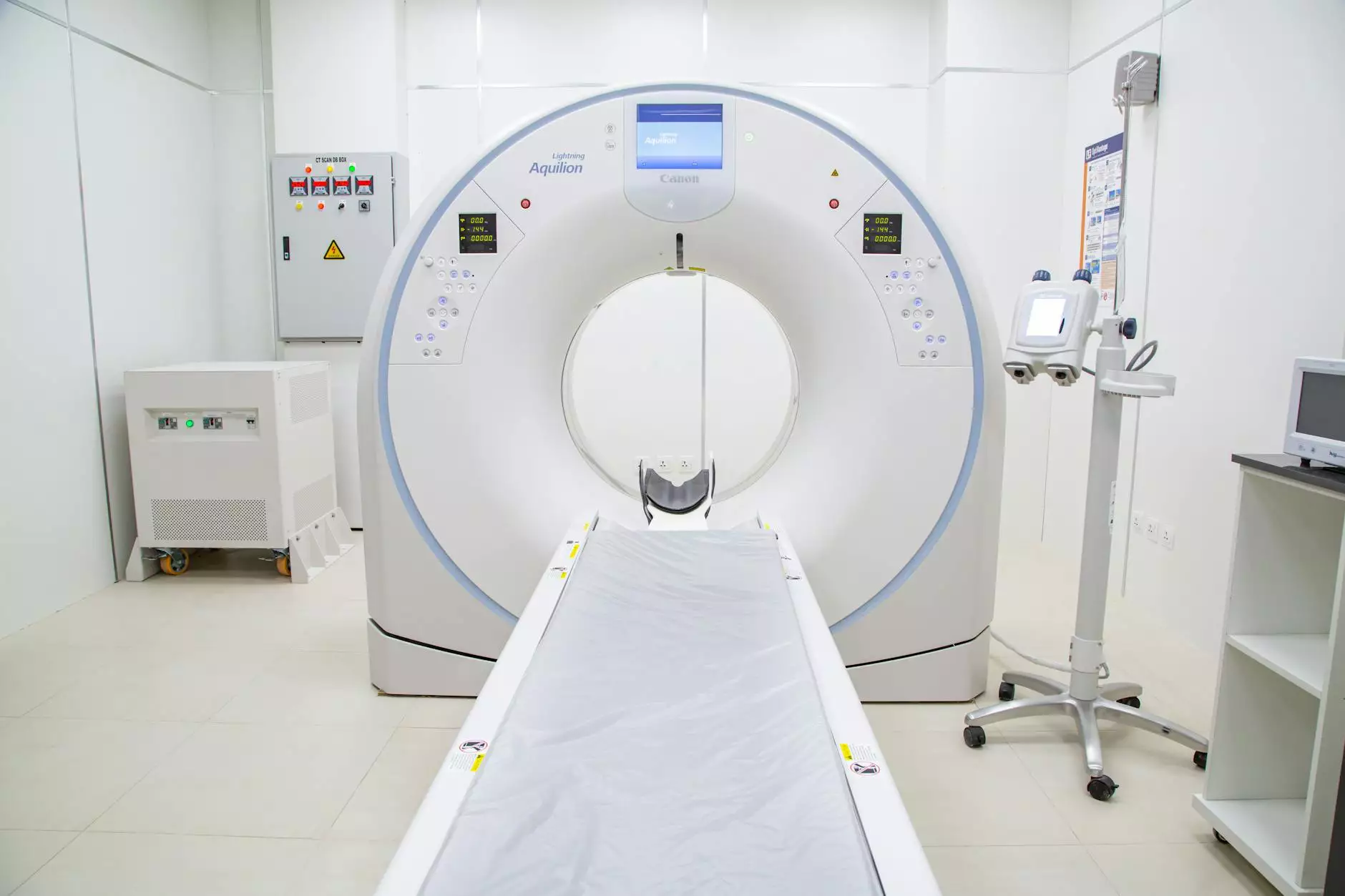Understanding the Critical Role of MRI Service in Modern Healthcare

In the rapidly evolving landscape of healthcare, advanced diagnostic tools have revolutionized medical practice, enabling clinicians to diagnose, treat, and monitor numerous health conditions with unprecedented precision. Among these tools, MRI service stands out as a cornerstone of medical imaging, offering unparalleled insights into the human body's inner workings. This comprehensive guide explores the significance of MRI service within the framework of health & medical, medical centers, and diagnostic services, emphasizing how it drives improved patient outcomes and operational excellence in medical facilities.
What is MRI Service and Why Is It Essential?
Magnetic Resonance Imaging (MRI) is a non-invasive imaging technology that uses powerful magnetic fields and radio waves to generate detailed images of organs, tissues, and skeletal structure. The MRI service involves not only the sophisticated equipment but also the comprehensive support systems that ensure accurate, timely, and safe imaging for patients.
- High-Resolution Imaging: MRI provides unmatched clarity and contrast, revealing minute details that other imaging modalities like X-ray or CT scans may miss.
- Comprehensive Diagnostic Capabilities: From neurological assessments to musculoskeletal injuries and vascular abnormalities, MRI covers a broad spectrum of medical diagnostics.
- Safety: Since MRI does not utilize ionizing radiation, it is safer for repeated use, especially in vulnerable populations such as pregnant women and pediatric patients.
Advancement in Diagnostic Services: The Role of MRI in Modern Medical Centers
Top-tier medical centers recognize the transformative impact of MRI service. These facilities invest heavily in state-of-the-art MRI equipment and related innovations to provide superior patient care.
Paginating through complex medical conditions—such as tumors, neurological disorders, or vascular diseases—becomes more manageable with advanced MRI technology. This accuracy enhances treatment planning, surgical interventions, and disease monitoring.
Benefits of Incorporating MRI Service in Medical Centers
- Enhanced Diagnostic Accuracy: Precise imaging leads to accurate diagnoses, reducing uncertainties and facilitating targeted treatments.
- Patient Comfort and Safety: Modern MRI units are designed with patient-centered features, including noise reduction and open designs, ensuring comfort and compliance.
- Operational Efficiency: Rapid imaging protocols and high-throughput capabilities allow medical centers to serve more patients with reduced wait times.
- Cost-Effectiveness: While high-end MRI equipment requires significant investment, the improved diagnostic capabilities justify the cost by reducing unnecessary procedures and optimizing care pathways.
Key Features of Cutting-Edge MRI Services Offered by Leading Diagnostic Centers
Leading diagnostic services providers focus on delivering MRI service that integrates technological innovation with comprehensive patient care. These features include:
- High-Field Strength Magnets: Offering 3 Tesla (3T) MRI systems for unparalleled image resolution.
- Advanced Coils and Software: Utilizing specialized coils and intelligent imaging software to capture detailed images of specific body parts.
- Rapid Imaging Sequences: Minimizing scan times and improving patient throughput without compromising quality.
- AI-Powered Image Processing: Leveraging artificial intelligence to enhance image clarity and facilitate faster interpretation.
Safety, Comfort, and Accessibility: The Cornerstones of Modern MRI Service
Providing effective MRI service goes beyond just technology. Patient safety, comfort, and accessibility are pivotal. Contemporary MRI facilities emphasize:
- Safety Protocols: Adhering to strict standards to prevent magnetic hazards, screen for contraindications, and ensure a secure environment.
- Patient Experience: Incorporating noise reduction headphones, calming environments, and gentle positioning to reduce anxiety.
- Accessibility: Extending services to diverse populations, including mobile MRI units and flexible scheduling, making diagnostics accessible for rural or underserved communities.
Integration of MRI Service with Other Medical Disciplines
Effective MRI service is integral to multidisciplinary healthcare delivery. It supports specialties like neurology, oncology, orthopedics, cardiology, and more by providing detailed imaging that guides clinical decision-making.
Moreover, integrating MRI imaging data with electronic health records (EHR) enhances continuity of care, facilitates telemedicine consultations, and supports research initiatives aimed at improving patient outcomes.
Impact of MRI Service on Patient Outcomes and Healthcare Quality
Investing in high-quality MRI service directly correlates with improved patient outcomes. Precise imaging allows for:
- Early Disease Detection: Facilitating timely intervention and better prognosis.
- Accurate Disease Characterization: Differentiating between benign and malignant lesions, for example, informing appropriate treatment plans.
- Monitoring and Follow-Up: Tracking disease progression or response to therapy over time with consistent imaging benchmarks.
- Minimizing Invasive Procedures: Reducing the need for diagnostic surgeries through detailed non-invasive imaging.
Economic and Business Advantages of Offering MRI Service in Medical & Diagnostic Business
Modern businesses in medical centers and diagnostic facilities recognize MRI service not only as a medical necessity but also as a strategic business advantage. This includes:
- Revenue Generation: Providing diverse diagnostic options attracts more patients and insurance partnerships.
- Market Differentiation: State-of-the-art MRI services set clinics apart from competitors, fostering brand loyalty.
- Operational Advantages: High-throughput MRI units optimize resource utilization, increasing efficiency and profitability.
- Partnership and Referral Opportunities: Collaborating with specialists and hospitals enhances the provider network and expands service reach.
Choosing the Right MRI Service Provider: What to Look For
For healthcare providers or patients seeking top-tier MRI service, consider these factors:
- Technological Superiority: Cutting-edge equipment and software for superior imaging quality.
- Qualified Staff: Experienced radiologists and technicians skilled in high-resolution MRI procedures.
- Patient-Centered Care: Comfort-focused environment, clear communication, and safety protocols.
- Accreditation and Certification: Presence of recognized standards such as AAAASF, ACR accreditation, ensuring quality and safety.
- Accessibility and Convenience: Multiple locations, flexible hours, and support for diverse patient needs.
Conclusion: Embracing MRI Service for a Healthier Future
The advancement of MRI service epitomizes the transformative power of technology in healthcare. From improving diagnostic accuracy to enhancing patient safety and operational efficiency, modern MRI solutions are indispensable in today’s medical landscape. As healthcare continues to evolve, investing in high-quality MRI capabilities within medical centers and diagnostic services not only benefits patients but also elevates the overall standard of care and business success.
Leading organizations like Echo Magnet Services are committed to providing innovative, safe, and reliable MRI solutions, ensuring that healthcare providers can meet the growing demands of their communities today and in the future.









